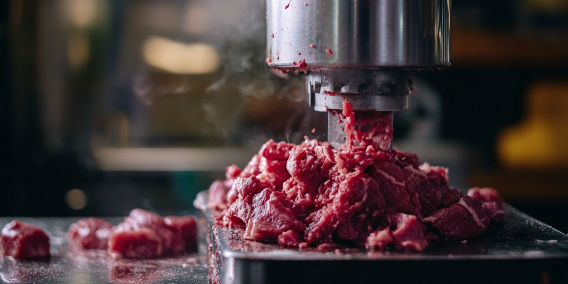The Minnesota Department of Health (MDH) has identified 10 cases of E. coli O157:H7 infection in people who had eaten burgers at multiple locations of Red Cow, a table-service restaurant chain with locations in Hennepin, Ramsey, and Olmsted counties. One additional case reported dining at Hen House Eatery in Minneapolis, which received the same ground beef product suspected in this investigation. The ground beef product was also distributed to other establishments, so additional cases from other locations could be identified. So far, cases have reported meal dates of October 31 through November 7, 2024, and illness onset dates range from November 4 through 9, 2024. Individuals impacted range in age from nine to 70 years, and two individuals have been hospitalized. Additional potential cases are under investigation.

“From the Jack-in-the-Box E. coli outbreak in 1993 to the 2002 ConAgra E. coli outbreak of 2002, 90% of my work was E. coli cases linked to undercooked hamburgers,” said Food Safety Attorney Bill Marler. “After 2002, the number of E. coli cases tied to hamburger fell due to better USDA regulations, new intervention and testing by meat plants, and the U.S. Food Code setting temperatures for restaurants to cook hamburgers at 160F. To see an outbreak that is clearly linked to tainted meat being undercooked is both disappointing and wrong."
E. coli O157:H7 is a serious bacterial infection that can cause severe symptoms, including stomach cramps, diarrhea (often bloody), and vomiting. If you or someone you know experiences these symptoms and suspect possible exposure, seek medical attention immediately.
Recommended actions for consumers:
1. Avoid undercooked hamburgers: To prevent illness, consumers are advised to avoid consuming hamburgers that are not cooked to the recommended internal temperature. The CDC recommends cooking ground beef to an internal temperature of 160°F (71°C).
2. Be aware of symptoms: Monitor for symptoms of E. coli infection. If you have recently eaten at one of the identified restaurants and experience symptoms, contact your healthcare provider promptly.
3. Request well-cooked meals: When dining out, request that your hamburger is thoroughly cooked to a safe temperature.
4. Stay informed: Follow updates from health authorities, including the Minnesota Department of Health and the CDC, for further developments and safety guidelines.
William "Bill" Marler has been a food safety lawyer and advocate since the 1993 Jack-in-the-Box E. coli outbreak which was chronicled in the book, "Poisoned" and in the recent Emmy Award winning Netflix documentary by the same name. Bill work has been profiled in the New Yorker, "A Bug in the System;" the Seattle Times, "30 years after the deadlyE. coli outbreak, A Seattle attorney still fights for food safety;" the Washington Post, "He helped make burgers safer, Now he is fighting food poisoning again;" and several others. Dozens of times a year Bill speaks to industry and government throughout the United States, Canada, Europe, Africa, China and Australia on why it is important to prevent foodborne illnesses. He is also a frequent commentator on food litigation and food safety on Marler Blog. Bill is also the publisher of Food Safety News.
For all media inquiries, please contact Julie Dueck at jdueck@marlerclark.com or call 206-930-4220.